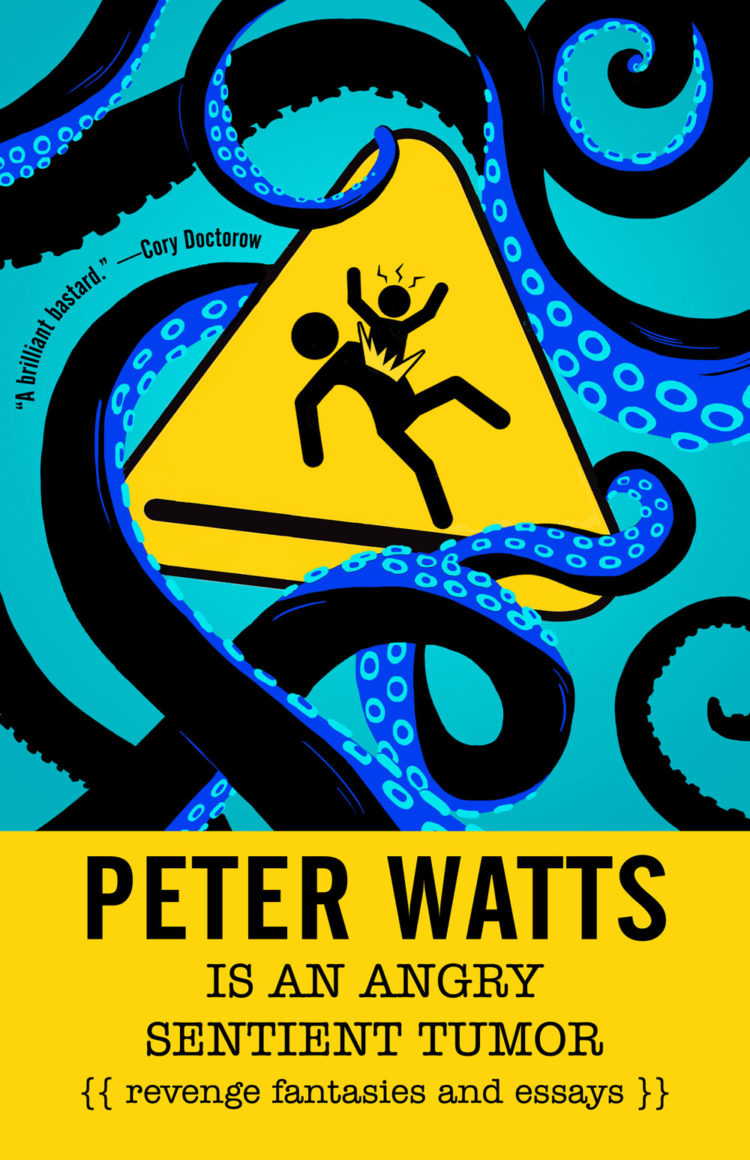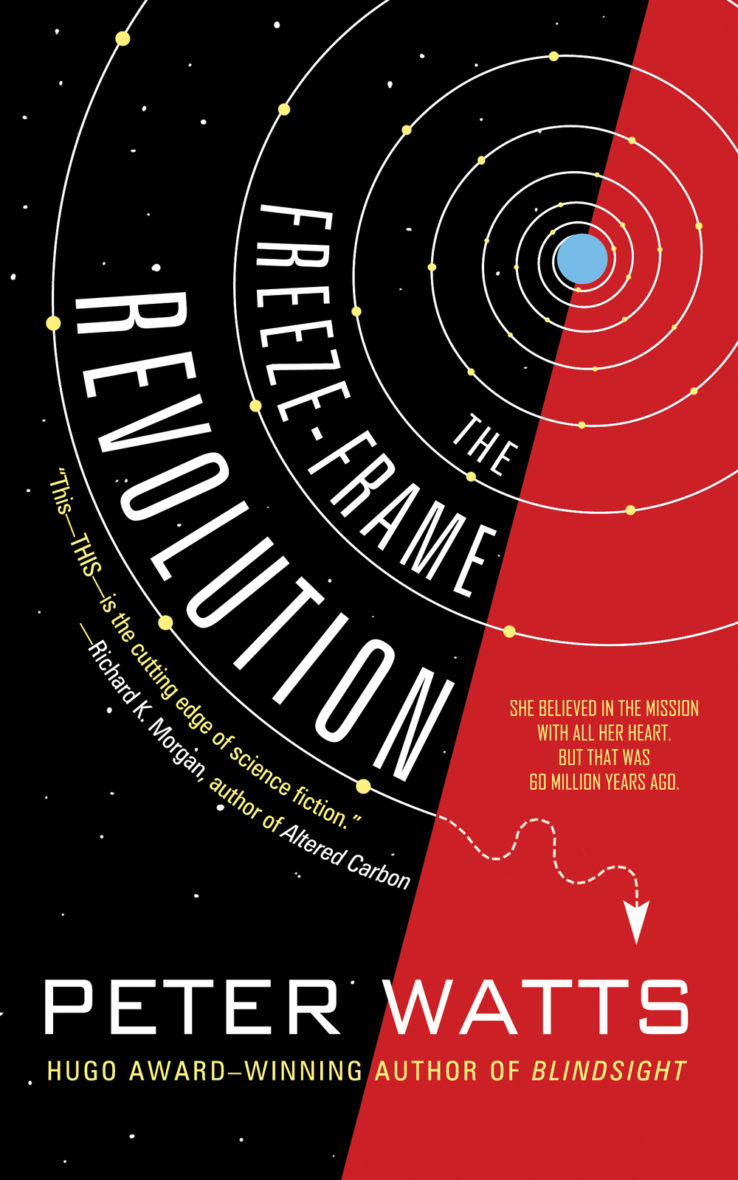PETER WATTS IS AN ANGRY SENTIENT TUMOR is an exciting and energizing journey

Over at STRANGE HORIZONS, Vivian Wagner in a lengthy review praises PETER WATTS IS AN ANGRY SENTIENT TUMOR.
Collected from his blog, The ‘Crawl, and other sources, these essays often take the form of rants, but they’re endearing and engaging ones. Watts, a former marine biologist and Hugo Award-winning Canadian science fiction writer, rails against climate change one moment and movingly describes his relationship with a cat the next. You never know where his writing’s going to lead, and reading his essays is an exciting, energizing, and occasionally bewildering journey.
In this entertaining overview, Marissa Lingen at NOVEL GAZING REDUX enjoys the collection.
As with any contentious blogger, you’ll probably find at least some of the posts/essays in here to cheerfully disagree with–or to bury your head in your hands, groan, and wish you could disagree with. But remember: the reader expectations should be set pretty clearly. This is what it says on the tin. Not: Peter Watts Is An Angry Sentient Tumor But Look! A Butterfly! or Peter Watts Seems Like An Angry Sentient Tumor But In Just Three Essays You’ll Find Out How He Learned To Play His Cares Away On The Ukulele–And So Can You! There’s a lot of climate change realism, a lot of anger at police brutality and surveillance state assholery, a lot of frustration at entirely valid frustrating human behavior. Also a little bit of talking out his ass about YA fiction, some movie reviews, mourning for some much-loved humans and cats. This is a set of blog posts, not a two-minutes’ hate, no matter how well-directed. It’s easy to slip into “just one more” here even when you’re wincing and going “oh God too much truth.” Just a little more truth though, just one more blog post worth of truth before I go back to my fever dreams….

For CLARKESWORLD, Arley Song interviews Watts.
The table of contents for PETER WATTS IS AN ANGRY SENTIENT TUMOR offers everything from “Why I Suck” to “Pearls Before Cows: Thoughts on Blade Runner 2049.” Is there an organizational principle at work behind what pieces were in the collection? Are there new pieces only available in the book?
You’ll have to ask Jacob (my editor at Tachyon) about any grand organizational architecture; I handed him a bunch of pieces and he made the selection. I did serve them up according to theme—Reviews, Writing, Science, and so on—but they all ended up getting mooshed into a single unpartitioned volume.
Tumor is a reprint collection; the only piece that hasn’t previously appeared anywhere on the planet is my Introduction. That said, you’d have to be one hard-core fan to have seen it all before. If you’ve only followed my blog you won’t have seen the Nowa Fantastyka columns that appeared only in Poland; if you’ve devoured those columns in their original Polish you might not have seen essays that appeared in places like Aeon and The Daily. It doesn’t break physics to posit a fan so devoted they’ve stalked me across the Internet and into every dead-tree venue I’ve ever written for, but it is vanishingly unlikely.
DEATH IS BAD enjoys THE FREEZE-FRAME REVOLUTION.
The mark of a good book is, of course, the drawing together of mood and theme into a compelling plot that moves the reader through the story, and Freeze-Frame has that too. The changes that occur over deep time, and the insane level of engineering that was bent to the task of making a thing that would remain stable over so long (and the interesting ways it fails) tie into the covert revolution plot as well. There’s just so much to love here for fans of dark SF.

HYPEROBJECTIVE on their DISPATCHES FROM THE END OF HISTORICITY feels much the same way.
I much prefer this sort of speculative future to one that disregards human agency, whimsy and unpredictability, writing off what makes us unique as irrelevant. We are messy animals, and geniuses, and I still have some hope for a future where we can stare down the barrel of AI supremacy and say “betcha can’t do this.”
In episode 160 of the German language blog ALLE BÜCHER MÜSSEN GELESEN WERDEN, Watts’ short story “Mayfly,” which appears in BEYOND THE RIFT, is recommended.
